

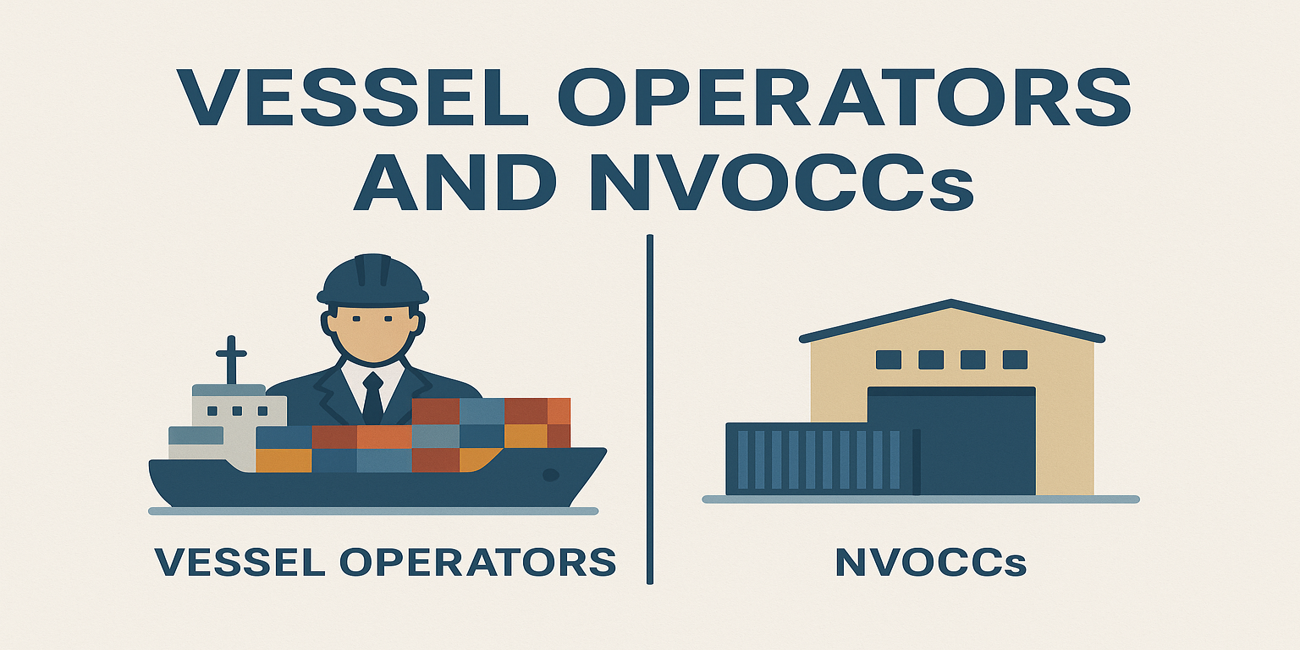
You’ve got a shipment ready, your buyer’s waiting, and your freight agent just asked, “Do you want it booked under a vessel operator or an NVOCC?”
You pause. The terms sound familiar, yet unclear. One runs the ship, one sells space — but which one gives you more control, faster transit, or better rates?
This confusion isn’t small. It’s what separates a smooth shipment from one stuck at port. Let’s break down what a vessel operator really does and how it differs from an NVOCC, in plain English.
A Vessel Operator is the company or entity that owns, manages, and runs the ships carrying goods across the world’s oceans.
They aren’t just booking space — they are responsible for the entire vessel’s operation, from navigation and maintenance to safety and scheduling.
Here’s what a vessel operator typically handles:
Think of the vessel operator as the beacon of the shipping process—without them, global trade simply doesn’t move.
An NVOCC (Non-Vessel Operating Common Carrier) doesn’t own ships — instead, they buy space from vessel operators and resell it to shippers.
They act as middlemen but play a vital role in making shipping more flexible for businesses that don’t have enough cargo to fill an entire container or vessel.
Here’s what an NVOCC typically manages:
In short, an NVOCC is your go-to partner for flexible shipping when you don’t need or can’t afford to book full vessel space directly with an operator.
Although both help move cargo across the sea, their roles, responsibilities, and authority are quite different.
Understanding these differences helps you choose the right partner and avoid confusion in freight agreements.
| Aspect | Vessel Operator | NVOCC |
| Owns Ships | Yes – they own or lease and operate vessels. | No – they buy cargo space from operators. |
| Main Role | Runs and manages ships that transport goods | Acts as a carrier to shippers but hires vessel operators for transport. |
| Bill of Lading | Issues the Master Bill of Lading. | Issues their own House Bill of Lading. |
| Control Over Cargo | Works mainly with NVOCCs, freight forwarders, and large shippers. | Works directly with small and medium exporters or importers. |
| Customers | Works mainly with NVOCCs, freight forwarders, and large shippers. | Works directly with small and medium exporters or importers. |
| Responsibility | Responsible for vessel safety, operation, and compliance. | Responsible for booking, paperwork, and customer coordination. |
| Flexibility | Fixed schedules and routes. | More flexible in offering space and rates. |
Simple Rule: If they own the ship, they’re a vessel operator. If they sell space on someone else’s ship, they’re an NVOCC.
Choosing between a Vessel Operator and an NVOCC depends on your shipment size, frequency, and level of control you want over the process.
Here’s a simple way to figure it out:
The right choice isn’t about size alone — it’s about how much control and responsibility you want in your supply chain.
The line between a Vessel Operator and an NVOCC may seem small, but in global trade, it can decide how smoothly your cargo moves.
Every decision — from who issues your Bill of Lading to who handles your cargo at port — affects your cost, speed, and accountability.
Here’s why knowing the difference matters:
Knowledge isn’t just power here — it’s profit. The more you understand who moves your cargo, the more control you have over your trade flow.
1. What is the main job of a vessel operator?
A vessel operator owns or manages ships that move cargo across oceans. They handle everything—from route planning and crew management to ship maintenance and compliance.
2. Does an NVOCC own vessels?
No. An NVOCC (Non-Vessel Operating Common Carrier) does not own ships. They buy space from vessel operators and resell it to shippers who need flexible cargo solutions.
3. Who issues the Bill of Lading — vessel operator or NVOCC?
Both do, but they issue different types.
A vessel operator issues a Master Bill of Lading, while an NVOCC issues a House Bill of Lading to their customers.
4. Which is cheaper — vessel operator or NVOCC?
It depends. Large shippers often get better rates directly from vessel operators.
Smaller exporters usually save more with NVOCCs that consolidate shipments and offer flexible pricing.
5. Can a company work with both vessel operators and NVOCCs?
Yes. Many businesses use both — vessel operators for full container loads and NVOCCs for smaller, shared shipments.
6. Why is it important to know the difference between them?
Because it affects your shipping cost, accountability, and control.
Knowing who you’re working with helps you avoid confusion, delays, and miscommunication during transit.
Smart shippers know that success in trade isn’t luck — it’s clarity.
They understand who operates the vessel, who manages the cargo, and who’s accountable when things don’t go as planned.
That insight helps them negotiate better, ship faster, and build long-term trust in their logistics chain.
You can do the same — start by knowing the real role of your vessel operator.

Your Global Trade Navigator, Delivering End-to-End Excellence and Unlocking New Opportunities in Every Link of Your Supply Chain.
Get In Touch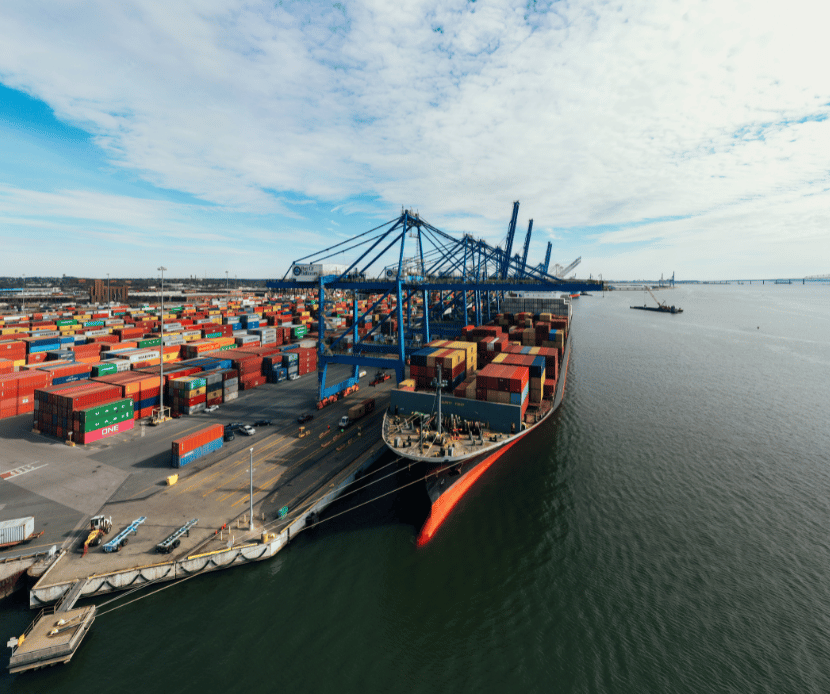
Explore our expert guide on Full Container Load (FCL) Shipping, covering benefits, processes, and tips to optimize your shipping experience efficiently.
Learn More FCL Shipping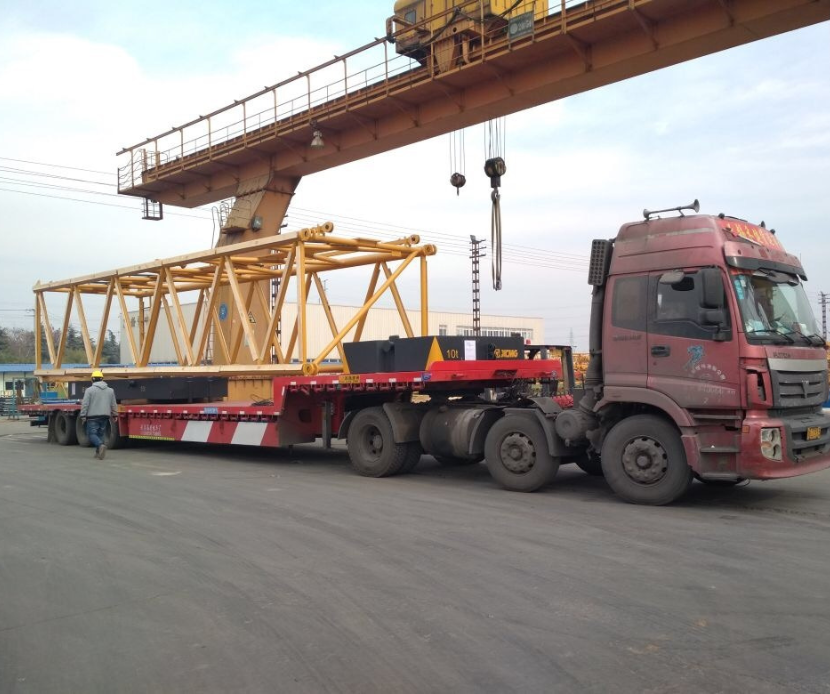
SJ Logistics specializes in the global transportation of high-value, oversized cargo, ensuring safe and efficient delivery for your most complex project logistics needs.
Learn More Project Cargo
Discover tailored warehousing solutions at SJ Logistics, designed for efficiency and strategic storage. Optimize your supply chain with our innovative services today!
Learn More Warehousing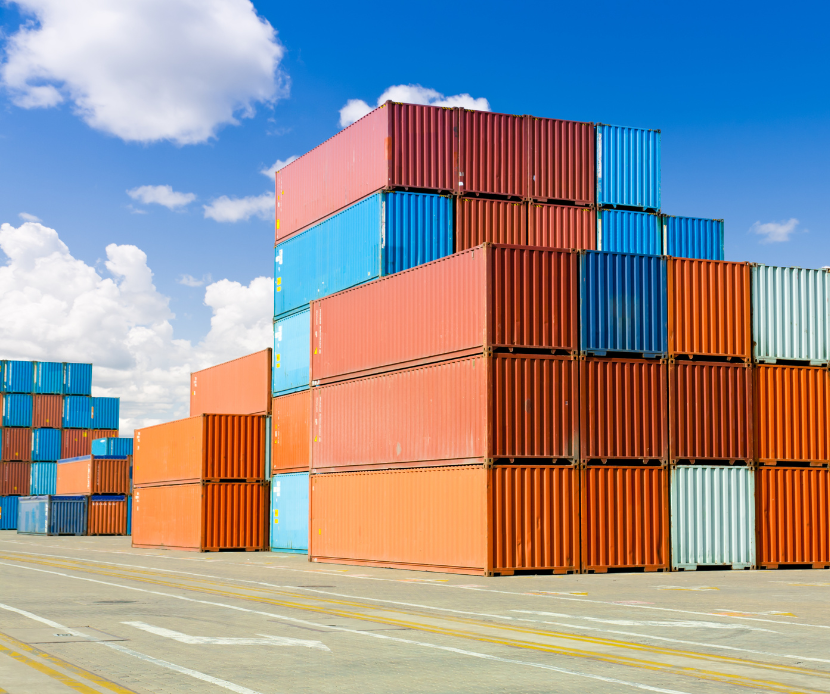
Discover comprehensive NVOCC solutions that streamline your logistics operations, enhance efficiency, and ensure seamless cargo management for your business needs.
Learn More NVOCC
Discover reliable inland transportation solutions that streamline your domestic logistics, ensuring timely and efficient delivery across the country.
Learn More Inland Transportation
Experience unparalleled convenience with our door delivery solutions, ensuring your packages arrive safely and promptly right at your doorstep. Discover more today!
Learn More Door Delivery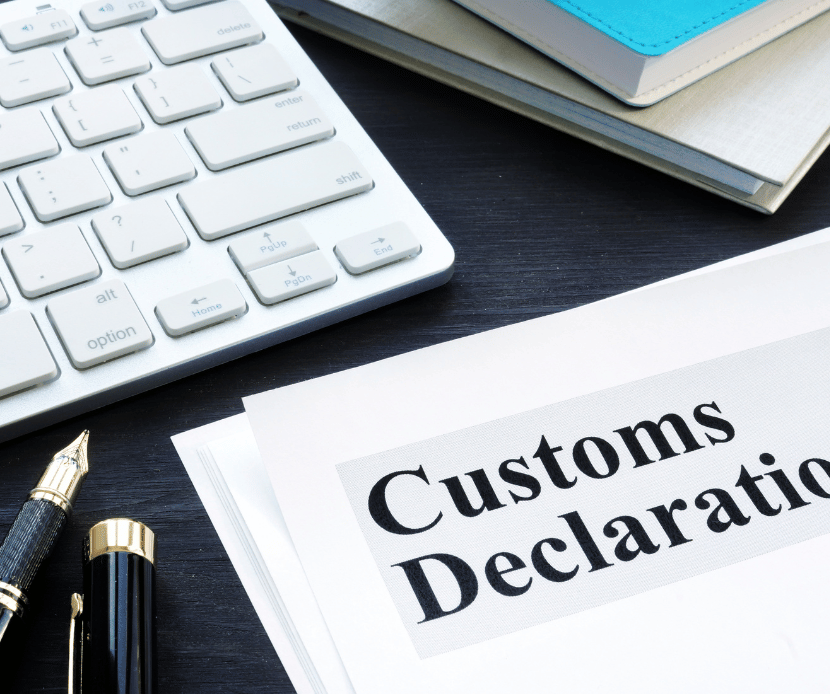
Experience seamless customs clearance with SJ Logistics. Our expert-led solutions ensure precision and efficiency, streamlining your import and export processes.
Learn More CHA
Experience unparalleled speed and reliability with our air freight services, ensuring your cargo reaches its destination swiftly and safely, no matter the distance.
Learn More Air Freight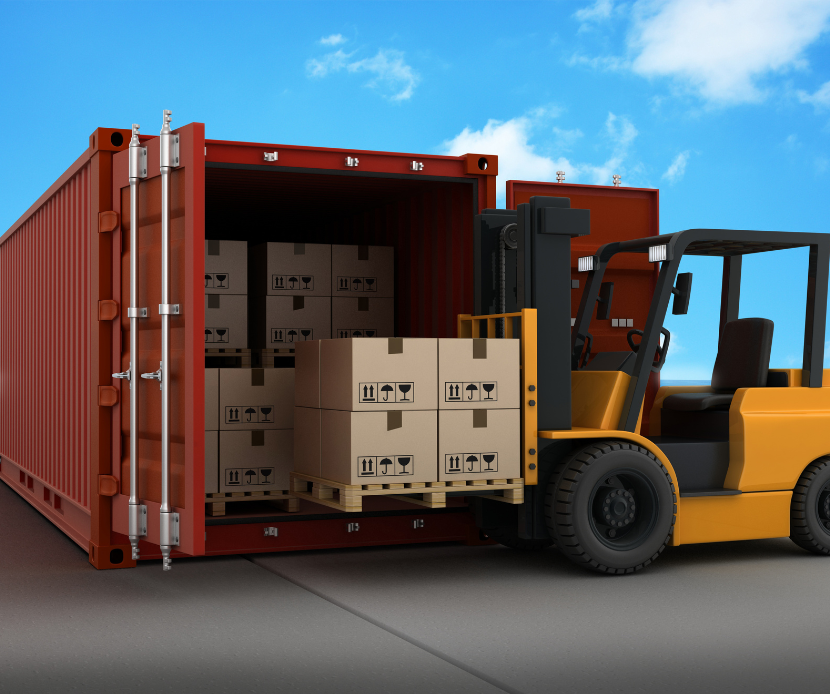
Unlock the benefits of LCL shipping with our tailored solutions. Enjoy flexibility, cost savings, and strategic support designed for SMEs to thrive in global trade.
Learn More LCL Shipping